100 years of ‘Abol Tabol:’ still at pinnacles of popularity – GetBengal story
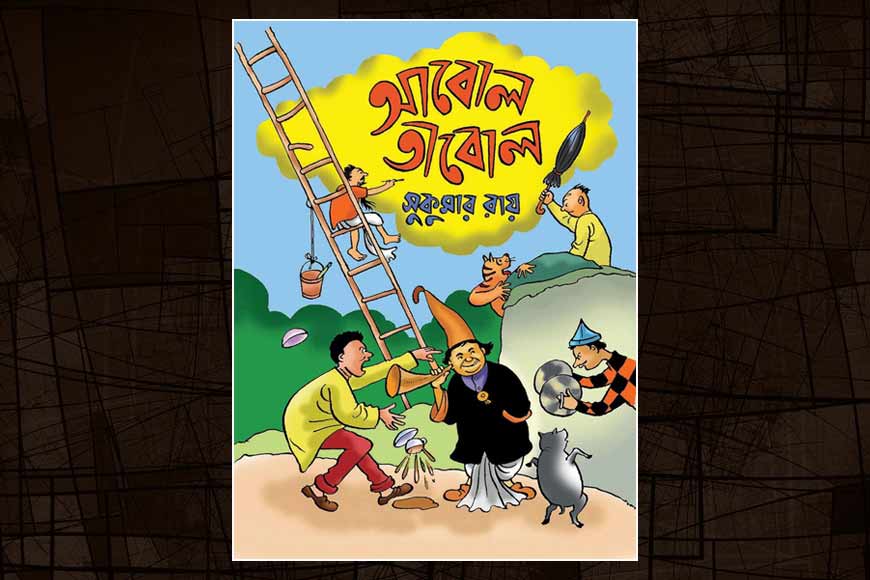
On September 19, 1923, ‘Abol Tabol’, an anthology of Bengali children's poems and rhymes composed and illustrated by Sukumar Ray was published by U. Ray and Sons. The book contained 46 titled and seven untitled short rhymes (quatrains), all considered to be in the genre of nonsense literature. Just 10 days before the book saw the light of day, Ray breathed his last on September 9. He was barely 36 years old then. ‘Abol Tabol’ is a milestone of Bengali poetry that has never been out of print since. The book of nonsense has remained a staple of Bengali childhood for generations. Rare is a Bengali child who does not have a ready familiarity with almost the entire Abol Tabol. This year Abol Tabol completes a century of publication and yet it continues to be as contemporary as it was 100 years ago. Abol Tabol continues to hold its own in the realm of Bengali verses and triumphs even in the 21st century. The dazzling lustre of the ‘nonsense’ verses illuminates the quintessential Bengali psyche.
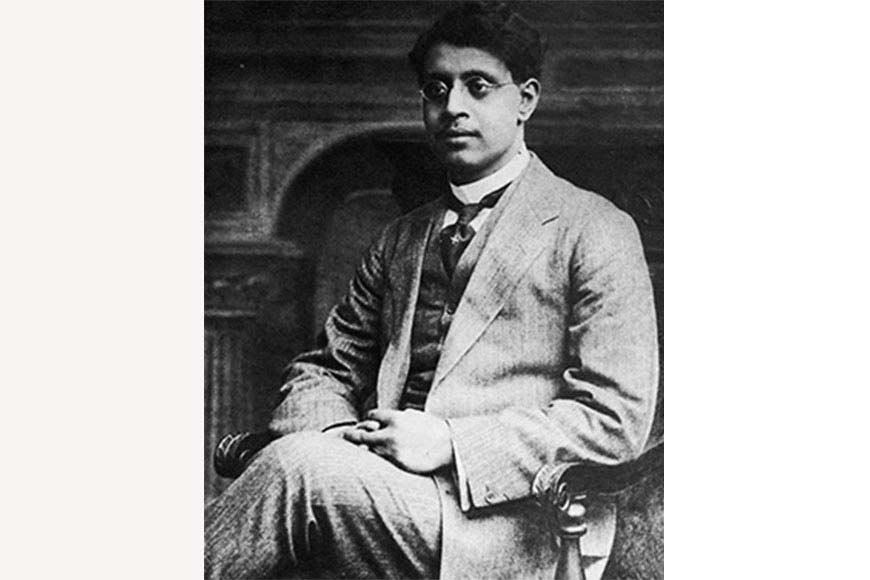 Sukumar Ray
Sukumar Ray
Abol Tabol provides the idea of the spirit of whimsy which is employed effectively in Ray’s poems. The author spawns doorways to wonderfully creative worlds filled by unusual characters and magical animals, where only gibberish makes perfect sense. The tremendously hilarious verses amuses the readers from start to finish, cracking with humour, wordplay and wild rhymes, and frequently reveling in utter nonsense. An analysis of humour in Sukumar Ray’s Abol Tabol provides clarity over the elements of parody, satire and other nonsensical elements that build up the inconclusiveness and linguistic play, enabling the poems to be enjoyed as a perfect example of ‘nonsense.’ However, the poems are not merely for children and each poem and even the quatrains, have a message and clues embedded in it.
Ray’s Abol Tabol applies the elements of literary nonsense and theories of post-colonialism to parody the British Raj and voice an opposition to a violent, unfair, dismal and mechanized socio-political environment, through incongruity, exaggeration, absurdity and distortion of reality. In his preface, titled ‘An Apology,’ Ray cleverly lured his readers to turn into rookie detectives and look for secret messages he had embedded in his verses. The nonsense verses cleverly concealed satire on the state of society and administration of colonial India.
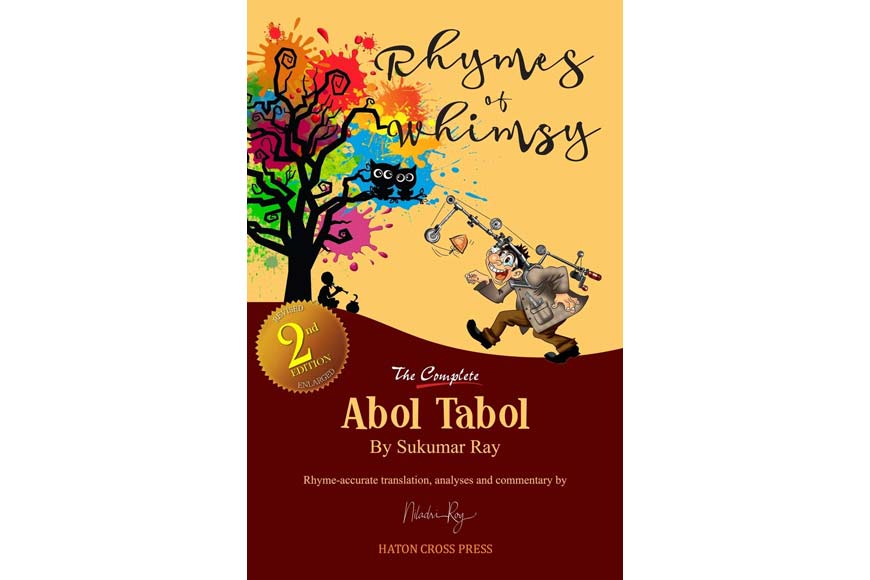 Rhymes of Whimsy The Complete Abol Tabol
Rhymes of Whimsy The Complete Abol Tabol
In 2017, Niladri Roy, a San Francisco-based engineer and a die-hard Sukumar Ray fan, published ‘Rhymes of Whimsy - The Complete Abol Tabol’, the first English translation of all the 53 poems of ‘Abol Tabol’. In the second part of his book (which he translated into Bengali), Niladri discusses the context behind each poem. During his research, he discovered that Sukumar Ray had clearly inserted encrypted messages in poems he had penned for children. Niladri’s in-depth search began for contemporary events that would fit each poem written by Ray. The amateur sleuth found dates for 39 of the 53 poems where a particular poem could be linked to contemporary events that occurred during Sukumar’s time.
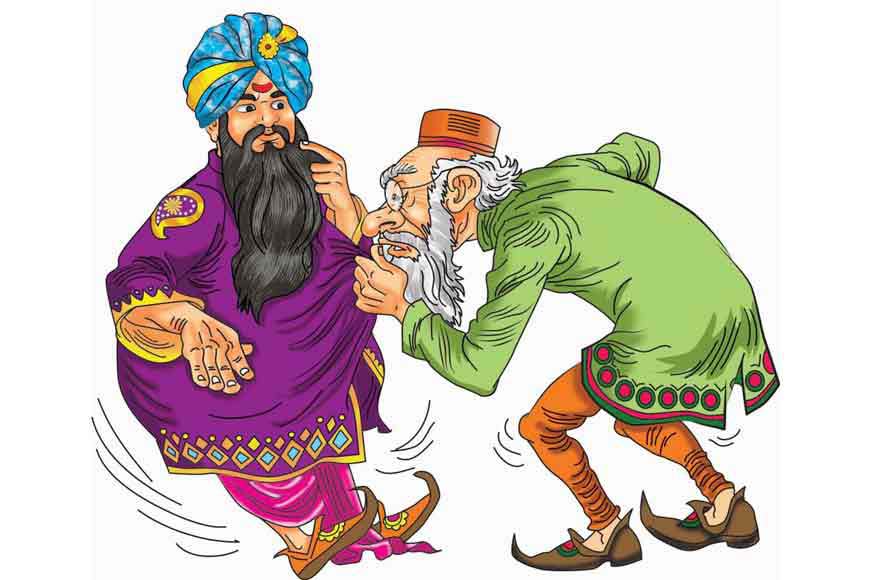 Gandho Bichar
Gandho Bichar
‘Gandho Bichar,’ for instance, refers to the “cash for peerages” scandal that compelled British Prime Minister David Lloyd George to resign in 1922 when his Conservative partners in coalition voted against him. Lloyd George sold honours to enable the nouveau riche to acquire aristocratic titles and operated a price list for peerages, ranging from £10,000 for a knighthood and up to £40,000 for a baronetcy. Several criminals were awarded titles and when King George V came to know about this arrangement, he had a major showdown with his Prime Minister that eventually led to the downfall of Britain’s last Liberal government. Again, the poem ‘Danpite’ is all about the Treaty of Versailles (1919), and the conflict that ensued between the three principal signatories - French Premier Georges Clemenceau, British Prime Minister David Lloyd George, and US President Woodraw Wilson (the ‘Tom chacha’ in the poem). The treaty held special significance for Bengalis because the British nominated Bengal’s first baronet Lord Satyendra Prasanna Sinha as the Indian signatory, though he politely turned down the offer. ‘Ekushe Ayin’ is a reference to the notorious Rowlatt Act of 1919, while in ‘Paloan’, the poet pays homage to Bhim Bhabani aka Bhabendra Mohan Saha, the celebrated wrestler who died of pneumonia in 1922, when he was just 33. Niladri continues his research, attempting to infer the dates of the remaining poems from what he could read of the messages written between the lines.
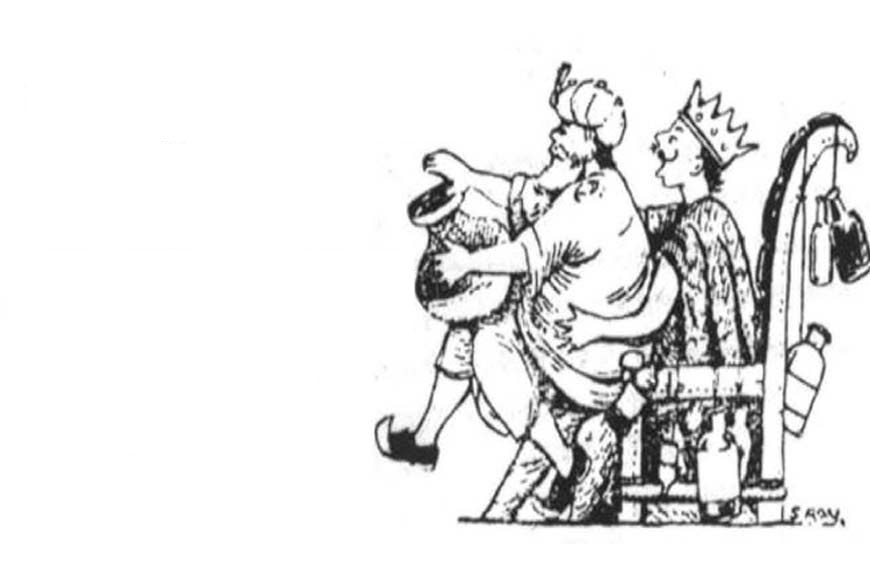 Bombagorer Raja
Bombagorer Raja
Again, ‘Bombagorer Raja’ (translated as “King of Bombardia’) parodies misgovernance through a nonsensical picture of a topsy-turvy world. Here the elites waste food and frame ‘aam sattow’ (dried mango slivers) or sticknails in custard pies. The king is perpetually engaged in trivial entertainment, with the minister on his lap. The mockery of nepotism occurs when the queen’s brother, the king’s aunt and the king’s uncle are encouraged to do whatever they want to with the country. The reversal of human behavior achieves incredible nonsensical appeal in ‘Ramgarurer Chhana’ (translated as ‘The sons of Ramgaroo’). Here the fundamental human instinct to laugh and be happy is contradicted by an obsessive commitment to melancholy, grieving and permanent despair. The poem is a light chastisement of those who condescend on laughter as frivolous or superficial. ‘The Sons of Ramgaroo’ and ‘The Old Tickler’ (‘Katukutu Buro’) are studies in contrast. The latter satirizes the fellows who bore others with insipid jokes. Ray’s sketch combines a human face with a reptilian body that lends itself to the psychological metaphor of the forceful repression of instinct and spontaneity, signified by laughter.
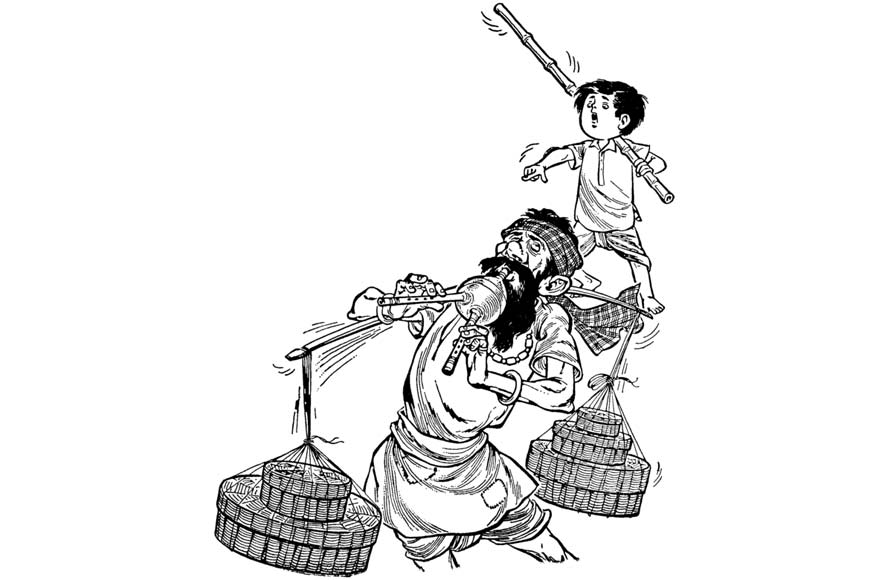 Baburam Sapure
Baburam Sapure
Manabendra Bandyopadhyay discusses in detail the various facets of ‘Baburam Sapure’ in the 10th edition of Kavita Parichoy where he says, “I feel this poem is a slap on our faces to make us realize how we look at life.” The British administration was paranoid about “seditious and subversive literature” and Sukumar knew that rhymes seemingly written for children were the best possible disguise for messages of an anti-colonial and subversive nature that would help him avoid censorship. Abol Tabol has a third dimension as well. Many critics insist that Sukumar's 'nonsense' verses are immensely influenced by the works of British authors, Edward Lear and Lewis Carroll. Rabindranath vehemently opposed this theory as he felt this was a wrong way to judge Bengali poetry using 'English literature's gaslight.'
Sukumar Ray, like his father Upendra Kishore Roychowdhury was a true polymath. He was the bearer of many voices and people interpret him according to a specific trait they discover in Ray. However, there is no denying the fact that Ray is indeed all that they assume and beyond. For some, he is the monarch in the realm of wit and humor, some see his innovations in the sphere of photography. He is revered as a brilliant academic, an inventor, a genius and some cherish his nonsense verses and interpret them as armed rhetoric against power. All said and done, Abol Tabol will continue to entertain readers of all ages as it has been doing for a century now.










